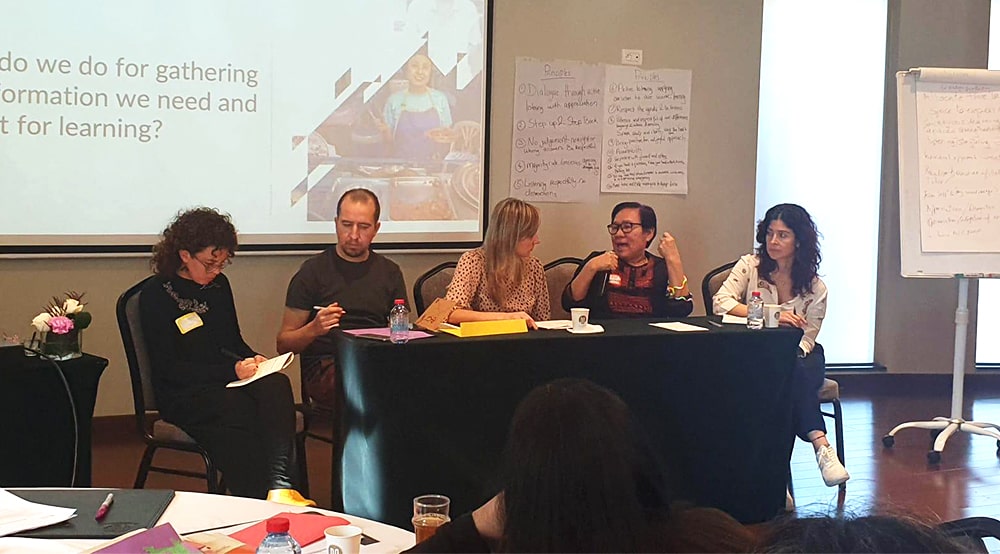The Advanced Monitoring Learning and Evaluation (MLE) training held from February 12-16 in Morocco organised by Women in Informal Employment Globalizing and Organizing (WIEGO), encompassed various sessions aimed at enhancing participants’ understanding and skills in Outcome Harvesting, evaluating the effectiveness of their activities, and using the insights gained for strategic adaptation and learning. The training was attended by HomeNet International, StreetNet International, International Alliance of Waste Pickers, and International Domestic Workers Federations.
The first session provided participants with a refresher on Outcome Harvesting, emphasising the distinction between outputs and outcomes using real examples from their work. They were guided to harvest outcomes into “stories of change” using outcome chains. The objectives included building confidence in drafting outcomes and creating outcome chains/webs to analyse the influence of their activities on change over time.
In the second session, participants received MLE manuals tailored to their specific focus areas, aiming to bolster outcome identification, harvesting, and strategic reflection, learning, and adaptation. Each group was assigned manuals corresponding to their field, such as research, training, conference outcomes, day-to-day work, and law advocacy, and on analysing patterns. HNI was provided with Toolkit 4: On evaluating research. Participants were divided into groups to focus on their respective assigned topics.
In the third session, a template for information gathering, analysis, learning, and adaptation was introduced, providing participants with a structured framework to document their approaches and exchange insights with their peers.
In the subsequent session, the focus shifted to identifying existing systems for information gathering and learning within each participant’s organisation. Participants had the opportunity to delve into their MLE planning processes, discussing methodologies and refining their approaches based on collective insights.
Finally, participants engaged in discussions to identify unanswered questions that couldn’t be addressed solely through Outcome Harvesting and explored alternative methods for gathering evidence to address these queries. Each group then presented their MLE plans, providing an opportunity to learn from each other on specific approaches to information gathering and learning to support adaptation of different strategies.
Overall, the training aimed to equip participants with the tools and methodologies necessary to effectively harness outcomes, evaluate their impact, and adapt strategies in their respective fields.



